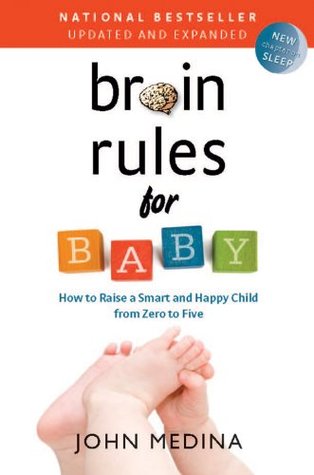More on this book
Community
Kindle Notes & Highlights
by
John Medina
Read between
August 6 - August 14, 2024
Myth: Continually telling your children they are smart will boost their confidence. Truth: They’ll become less willing to work on challenging problems (see “What happens when you say, ‘You’re so smart,’” page 138). If you want your baby to get into a great college, praise his or her effort instead.
“Children have never been good at listening to their parents, but they have never failed to imitate them.”
Speak to your children as often as you can. It is one of the most well-established findings in all of the developmental literature.
Kids praised for effort complete 50 percent more hard math problems than kids praised for intelligence.
1. Keep the TV off before the child turns 2. I know this is tough to hear for parents who need a break. If you can’t turn it off—if you haven’t created those social networks that can allow you a rest—at least limit your child’s exposure to TV. We live in the real world, after all, and an irritated, overextended parent can be just as harmful to a child’s development as an annoying purple dinosaur. 2. After age 2, help your children choose the shows (and other screen-based exposures) they will experience. Pay special attention to any media that allow intelligent interaction. 3. Watch the chosen
...more
Authoritative: Just right Responsive plus demanding. The best of the lot. These parents are demanding, but they care a great deal about their kids. They explain their rules and encourage their children to state their reactions to them. They encourage high levels of independence, yet see that children comply with family values. These parents tend to have terrific communication skills with their children.
You have to be comfortable with your emotions in order to make your kids comfortable with theirs.
Either way, a willingness to make the right choices—and to withstand pressure to make the wrong ones, even in the absence of a credible threat or in the presence of a reward—is the goal of moral development. Which means your parenting objective is to get your child to pay attention to and align himself with his innate sense of right and wrong. This takes time. A lot of time.
3-year-olds spanked more than twice in a month were 50 percent more likely to be aggressive by age 5.
Recreational experiences—digital games, certain types of web surfing, and our Wii gaming system—we called Category I. They were off-limits except under one condition. Our sons could “buy” a certain amount of Category I time. The currency? The time spent reading an actual book. Every hour spent reading could purchase a certain amount of Category I time. This was added up and could be “spent” on weekends after homework was done. This worked for us. The kids picked up a reading habit, could do the digital work necessary for their futures, and were not completely locked out of the fun stuff.
Determine your meta-emotion style What are your emotions about emotions? One particularly insightful test can be found in John Gottman’s book Raising an Emotionally Intelligent Child: The Heart of Parenting. Another, more technical book is Volume 4 of the Handbook of Child Psychology. Look in the chapter titled “Socialization in the Context of the Family: Parent-Child Interaction,” by E. E. Maccoby and J. A. Martin.


